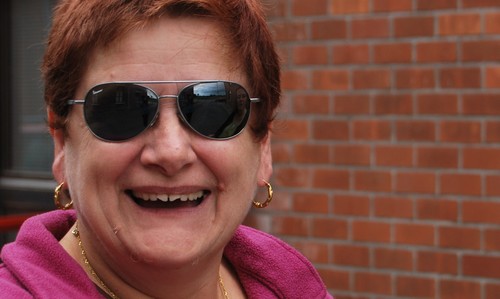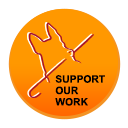
Physical rehabilitation centre

A sickness and invalidity insurance contract was signed for the Physical Rehabilitation Centre on 1 October 2003. This first-line service provides support to secure maximum independence for visually impaired people. It is headed by a doctor specialised in ophthalmology, who is registered as a visual rehabilitation provider.
The Low Vision Centre is part of the same department. It determines which optical aids are most appropriate and adapts them for individual cases.
Therapeutic staff is made up of ophthalmologists, an orthoptist, low vision, orientation therapists, mobility and daily activity therapists, a psychomotor specialist, psychologists, social workers and an IT technician.
Remit
The Physical Rehabilitation Centre meets demand for various types of support and training. Its goal is to improve people’s quality of life and promote greater independence in the day-to-day situation, whatever the nature or extent of their impairment. It is open to all ages – children and adults – suffering from a visual impairment with little or no likelihood of improvement, with the exception of children in type 6 special education.The Low Vision Centre meets a more specific demand, limited to visual strategies and optical aids. It optimises the visual potential of visually impaired people. While open to younger people, LVC is particularly oriented to the over 65s.
In practice...
The multidisciplinary team conducts the initial individual assessment. Once sight improvement potential has been evaluated, the aim is to identify the person’s needs. The result is a personalised re-education programme targeting several areas, including mobilisation of the body, travelling, written communication, and day-to-day intellectual, manual and operational activities.In the event of low vision, the orthoptist assesses the visual potential and teaches the person to use their sight optimally. The therapists provide various resources and techniques, and train people in their use, such as optical technical aids (magnifying glasses), non-optical technical aids (modified lighting), specific electronic aids (TV low vision magnifiers), computer aids (screen zoom software), technical ideas for day-to-day use (talking scales, tactile markers).
Copyright © Les Amis des Aveugles 2025 | Developed by Comase info With CodeWeb





